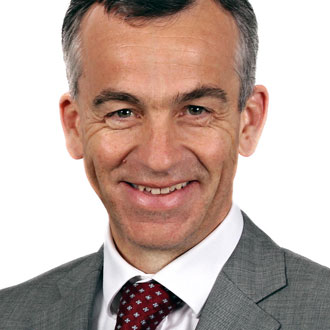If the Chancellor of the Exchequer follows through the Conservative party’s manifesto commitments when he delivers his emergency Budget on 8 July, GPs will be confronted with a mixed bag of changes.
Increases in income tax and inheritance tax thresholds, together with help with allowances on capital expenditure could bring benefits, but the predicted increase in personal allowances will be a double-edged sword, depending on how much a GP earns.
And the reduction in tax relief on pension contributions could see higher-earning GPs leaving the NHS pension scheme altogether, which could be either positive or negative, depending on your perspective.
Good news
Importantly, the threshold at which 40% tax starts to be paid is to be increased by the end of the parliament from £42,385 to £50,000. This is an annual saving of £1,523 for GPs who have a taxable income in excess of £50,000.
One of the most touted manifesto promises, that the inheritance tax threshold is to be increased to £1m per couple, is subject to the significant caveat that the extension of the nil rate band from the current £325,000 to £500,000 (£1m per couple) only applies to the main residence.
Also the extra allowance will be tapered away from bequests of more than £2m, with those of more than £2.35m not benefiting at all.
The annual investment allowance is the amount on which 100% tax relief can be claimed for capital equipment, such as the practice telephone system, ECG machine, blood pressure monitor or fitting out an extension. Currently set at £500,000, it is due to be reduced to £25,000 on 1 January 2016, although it is expected that a more permanent allowance – greater than £25,000 – will be announced in the Budget, which will help practices planning significant capital expenditure.
Bad news
Increases in the personal allowance should, in theory, offer good news. The Coalition Government had announced that the personal allowance would increase from £10,600 in 2015/16 to £11,000 in 2017/18 and the Conservatives have promised to increase it further to £12,500 by 2020/21.
But there is no suggestion that the policy of withdrawing the personal allowance for taxpayers who earn more than £100,000 will be amended, so the increase in personal allowance will increase the effective 60% band of income tax to cover GPs earning between £100,000 and £125,000.
Take a GP with taxable income of £100,000 from the partnership. No tax would be paid on the personal allowance of £12,500; 20% tax would be paid on the basic rate band, which would come to around £6,400, and there would be 40% tax on the rest. Overall, the GP would pay £28,600 in tax. With an extra £25,000 of income, the loss of the personal allowance would result in a tax bill of £43,600, meaning the GP would take home only £10,000 of the extra earnings.
Finally, there is bound to be an increase in the number of GPs ending their active membership of the NHS pension scheme because relief on contributions will be reduced for those earning more than £150,000.
To fund the increase in the inheritance tax band, the annual allowance of £40,000 is to be tapered away to £10,000 when an individual’s income reaches £210,000.
Luke Bennett is a partner at Francis Clark LLP and a committee member of the Association of Independent Specialist Medical Accountants.
Pulse October survey
Take our July 2025 survey to potentially win £1.000 worth of tokens












